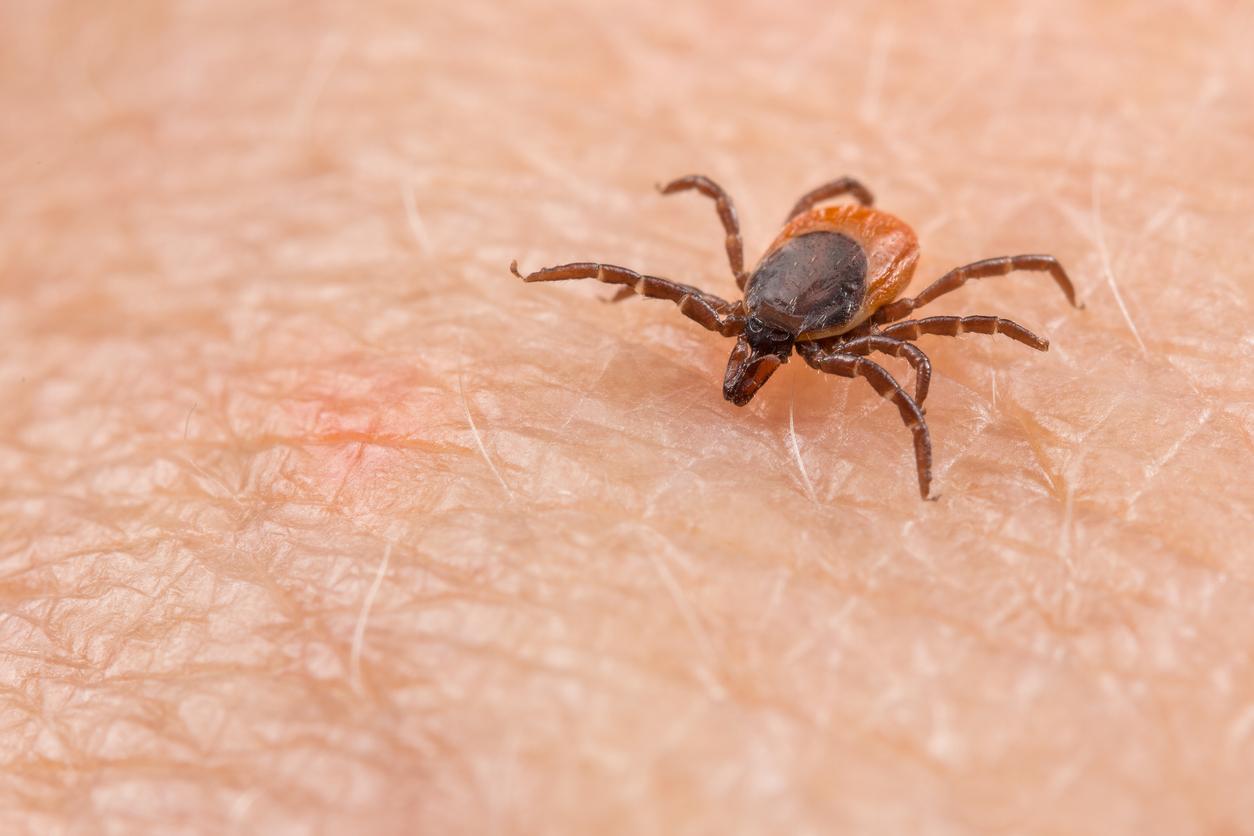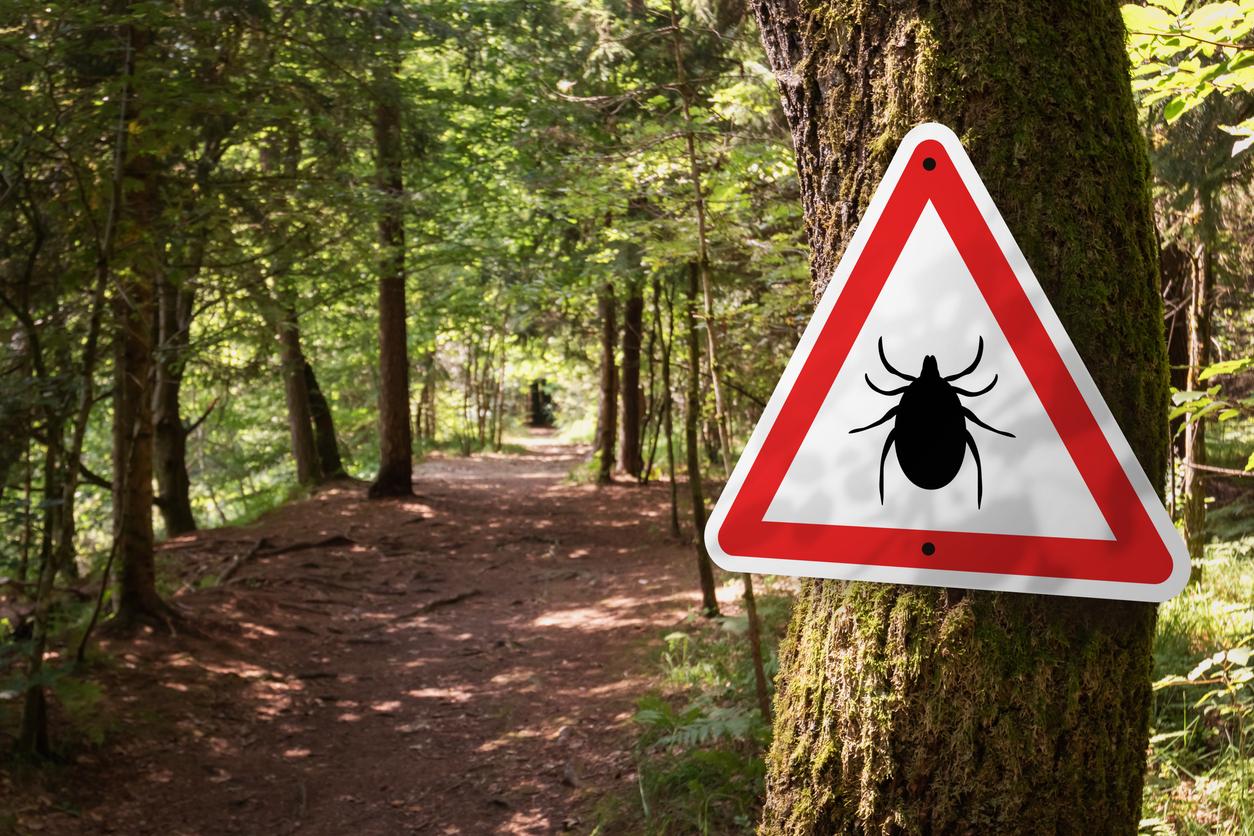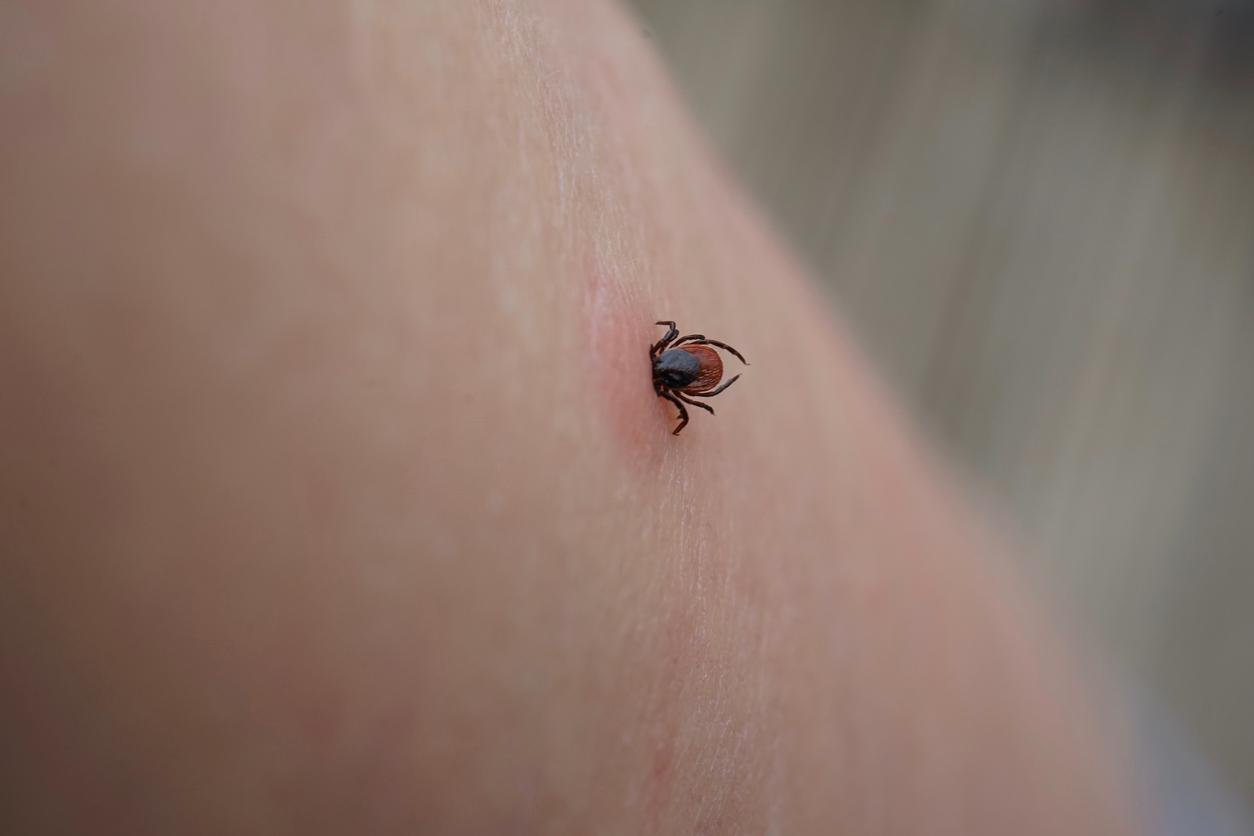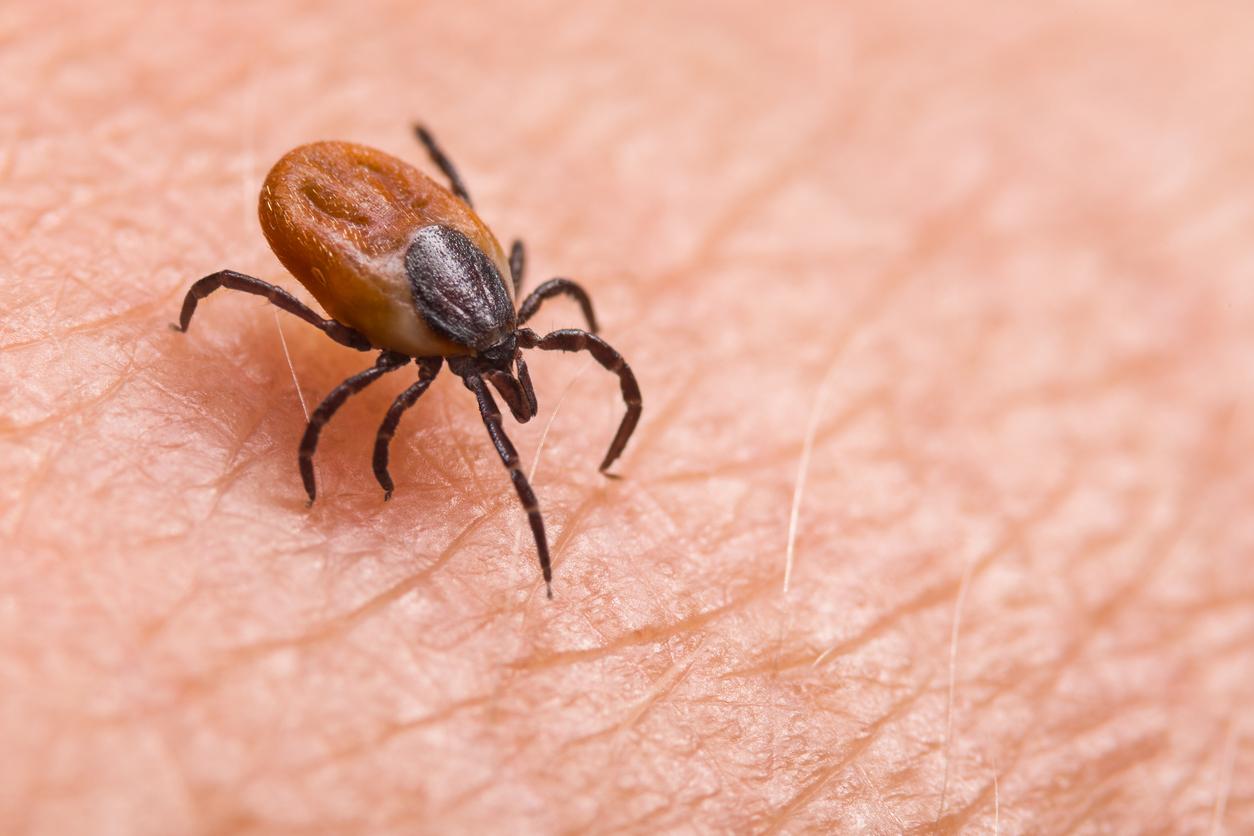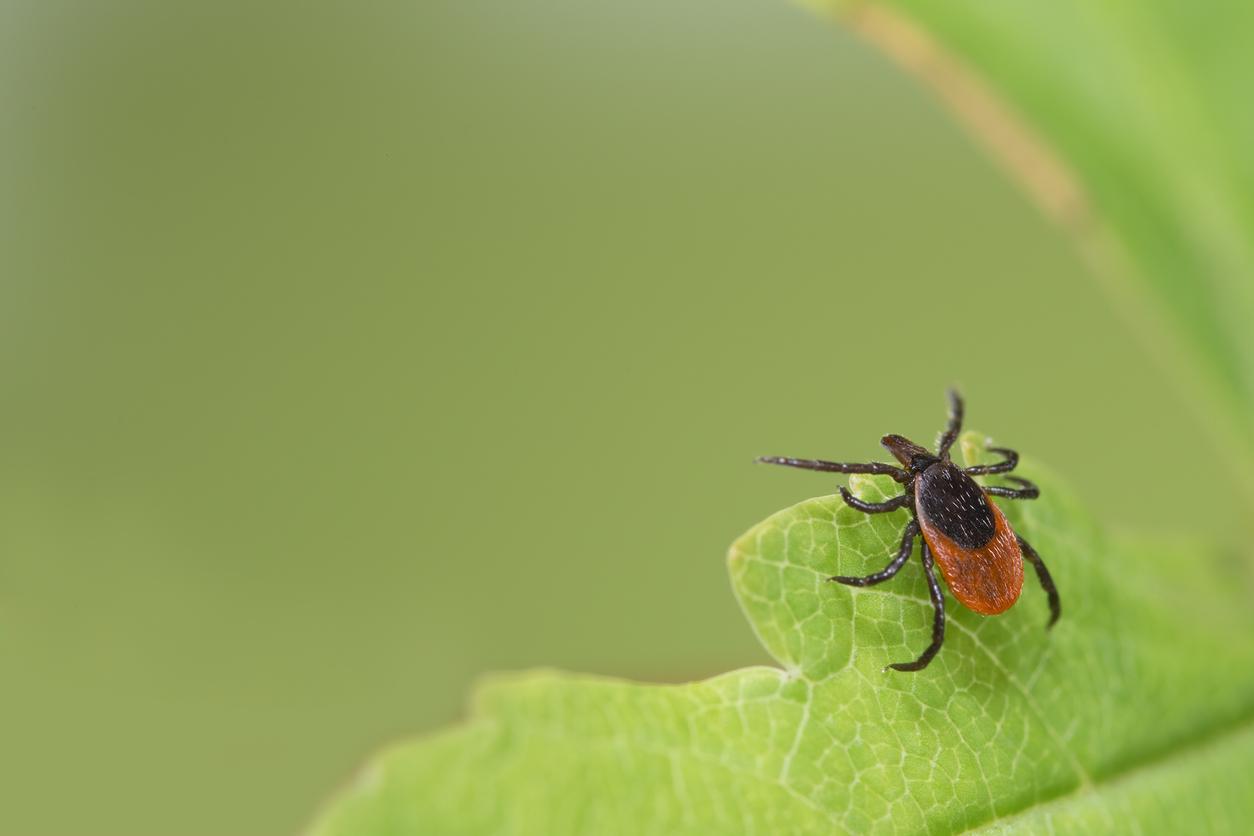Lyme disease transmitted by ticks, which affects more and more of our compatriots, is poorly understood, poorly diagnosed, and can be responsible for complications, in particular neurological ones.
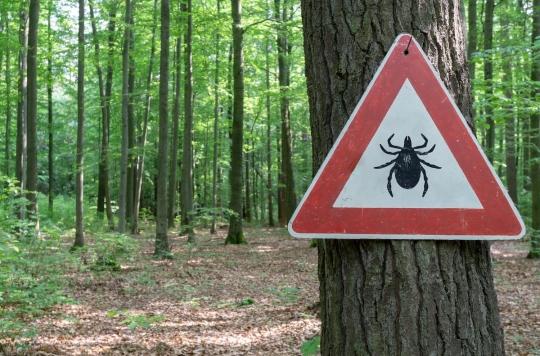
We have to talk about LYME disease, which is written LYME… We really have to talk about it because the French medical profession is making its mea culpa. He taught for a long time rather poorly about a very common disease in the United States or Austria, but which is beginning to affect more and more of our compatriots. Poorly known, it is therefore misdiagnosed, while it may be responsible for complications, in particular neurological.
The rate of increase seems significant: in France we have gone from a few hundred to more than 10,000 cases per year. 50,000 in Europe.
The responsible is a tick. A word about this “creature” that everyone seems to know… There are 869 species, all of which feed on blood, and therefore potentially vectors of disease. But only a few are of medical importance, because of the human or animal diseases they cause… In Lyme disease, it is a particular tick that injects a microbe called Borrelia burgdorferi.
There is unease in the medical profession because Lyme disease is considered an emerging disease, that is to say not mentioned by medical studies in the past. Then there is the outbreak; it is estimated, depending on geographical locations, that there may be up to 30% of infected ticks in France and up to 60% in Austria.
While in the United States, for example, you can see signs warning walkers that they are crossing a risk zone, the disease was belatedly recognized and monitored in France, while in Austria or Germany, the problem has since long considered an important public health problem. And then, the diagnosis is really not easy.
In full development
There are plenty of explanations for this extremely rapid development; the multiplication of routes that favor a very infected little mouse. Climate change of course. And soil drainage. The regression of predators such as lizards or young frogs. Added to the silence of the medical profession is a very trendy ecological file; quite rightly…
We must fear this disease, in France, rather in the north of our country, because very rich in ticks. The female is always looking for a good meal, usually an animal and rather small mammals. But it can also be a man whose blood she will pump for three to five days. When the feast is over, she detaches herself.
We can’t help it because most of the time we don’t notice it. In addition, while feeding, it is almost impossible to eliminate. However, it is not this meal that is responsible for the disease, but rather a microbe that the tick will inoculate into our blood while it feeds. This microscopic bacterium penetrates through saliva and will attack our body if left untreated.
Diagnosis too late
There is an incubation time but it is unfortunately very variable. It ranges from two days to a month. This does not always make it possible to link the symptoms to a rural escape! The symptoms are also very variable. They range from simple itching at the bite point to full-body flare-ups. But what medicine fears above all are heart problems, joint pains, which show where the microbe has taken up residence, and finally, above all, neurological problems which are often in fact the first reason for consultation and which disturb the diagnosis. Because it is not usual in our country to think of a tick bite in front of meningitis, abnormal paralysis of the limbs or the face.
Hence frequent misdiagnoses… this is indeed why in most cases of severe Lyme disease, the diagnosis is misdiagnosed, especially since, unlike many other infections, a simple blood test does not allow certainty. This is all the more annoying since at the beginning of the disease, the antibiotics work rather well. Which is also a factor of misguidance.
Besides, there are associations of former patients who are very active because these patients are very angry with medicine.
Precautions to take while walking
So, in the event of a tick bite, this tick must be removed as quickly as possible with fine tweezers, avoiding products such as ether which will cause it to regurgitate, thus increasing the risk. And then even very quickly his doctor.
There is a vaccine that did not protect against the European tick, which has been withdrawn from the market. We are still waiting for his successor… So the only prevention against tick bites remains essential. Repellents can be applied, on the skin or on the clothes.
However, their effectiveness remains limited and in addition, they are not devoid of undesirable side effects.
Their use therefore does not, in any way, dispense with observing the precautions
of use: the wearing of appropriate clothing, do not forget to put a large blanket on the ground before taking a nap in the woods, where this unfriendly animal prowls the most and do not hesitate to speak to the doctor in case of redness and weird itching.









